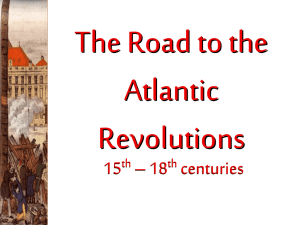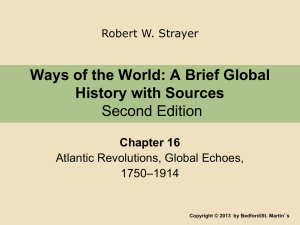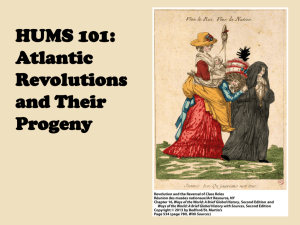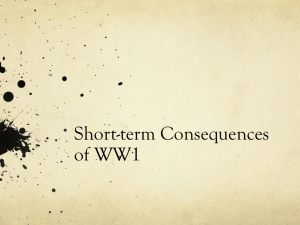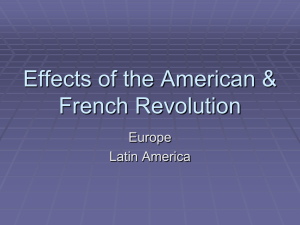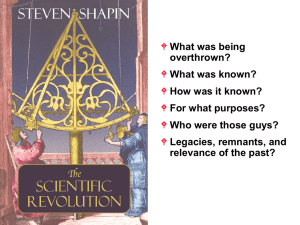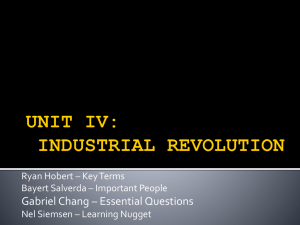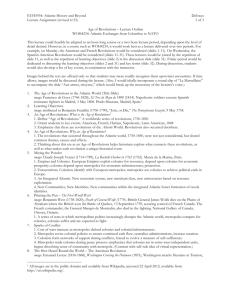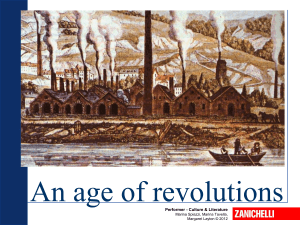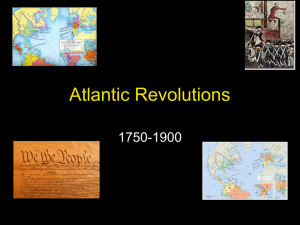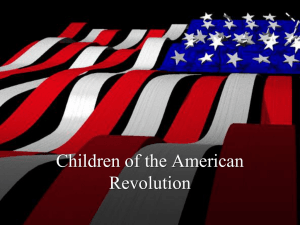16 - Spokane Public Schools
advertisement
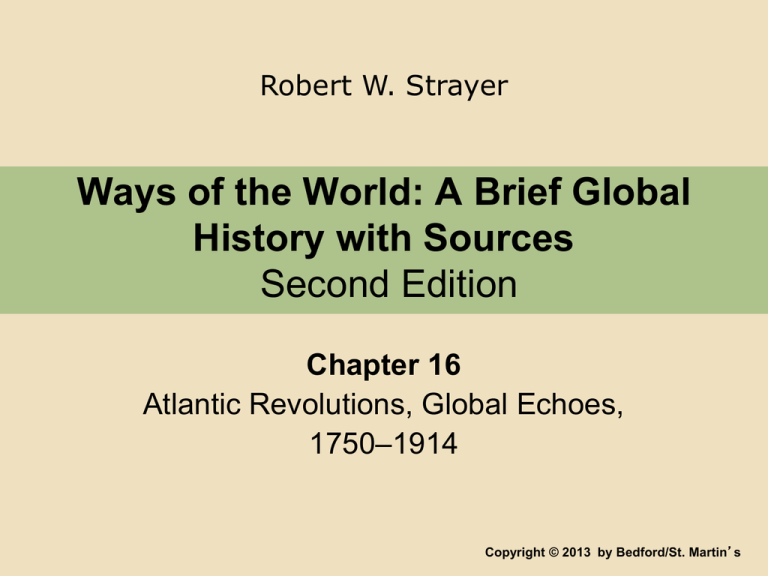
Robert W. Strayer Ways of the World: A Brief Global History with Sources Second Edition Chapter 16 Atlantic Revolutions, Global Echoes, 1750–1914 Copyright © 2013 by Bedford/St. Martin’s I. Atlantic Revolutions in a Global Context A. A “world crisis?” B. Uniqueness of the Atlantic revolutions C. The Atlantic as a “world of ideas” D. Democratic revolutions E. Global impact of the Atlantic revolutions II. Comparing Atlantic Revolutions A. The North American Revolution, 1775–1787 1. Revolutionary? 2. English in England and English in America 3. New taxes and ideas from the Enlightenment 4. A revolutionary society before the revolution II. Comparing Atlantic Revolutions in a Global Context B. The French Revolution, 1789–1815 1. The American connection: ideas, war debt, and taxes 2. Resentment of privilege and increasing radicalism 3. Inventing a new, rational world II. Comparing Atlantic Revolutions in a Global Context B. The French Revolution, 1789–1815 4. Women’s participation and then repression 5. Birth of the nation and the citizen 6. Napoleon’s French revolutionary paradox II. Comparing Atlantic Revolutions in a Global Context C. The Haitian Revolution, 1791–1804 1. Saint Domingue, the richest colony in the world 2. African slaves, white colonists, and gens de couleur 3. Slave revolt, civil war, and foreign invasion 4. Toussaint Louverture 5. Haiti: a post-slavery republic 6. “Independence debt” II. Comparing Atlantic Revolutions in a Global Context D. Spanish American Revolutions, 1810–1825 1. Creole resentment of Spanish rule and taxes 2. Napoleon’s 1808 invasion of Spain and Portugal 3. Racial, class, and ideological divisions 4. Simón Bolívar and the Americanos 5. Independence without social revolution or unity III. Echoes of Revolution A. The Abolition of Slavery 1. Protestant and Quaker moralism 2. New economic structures 3. Haiti and other slave revolts 4. British leadership III. Echoes of Revolution A. The Abolition of Slavery 5. Resistance to abolition 6. Emancipation without socio-economic changes 7. Emancipation and colonialism in Africa and the Islamic world III. Echoes of Revolution B. Nations and Nationalism 1. The “nation” as a new idea 2. Unification and independence 3. International conflict 4. Political uses of nationalism III. Echoes of Revolution C. Feminist Beginnings 1. Enlightenment attacks on tradition 2. Mary Wollstonecraft, Vindication of the Rights of Women, and Seneca Falls, 1848 3. Suffrage and professional opportunities 4. Opposition 5. Trans-Atlantic and global feminisms IV. Reflections: Revolutions Pro and Con A. Necessary? Promises? Worth the cost? B. Historians disagree and debate. C. Ongoing struggle to understand.
